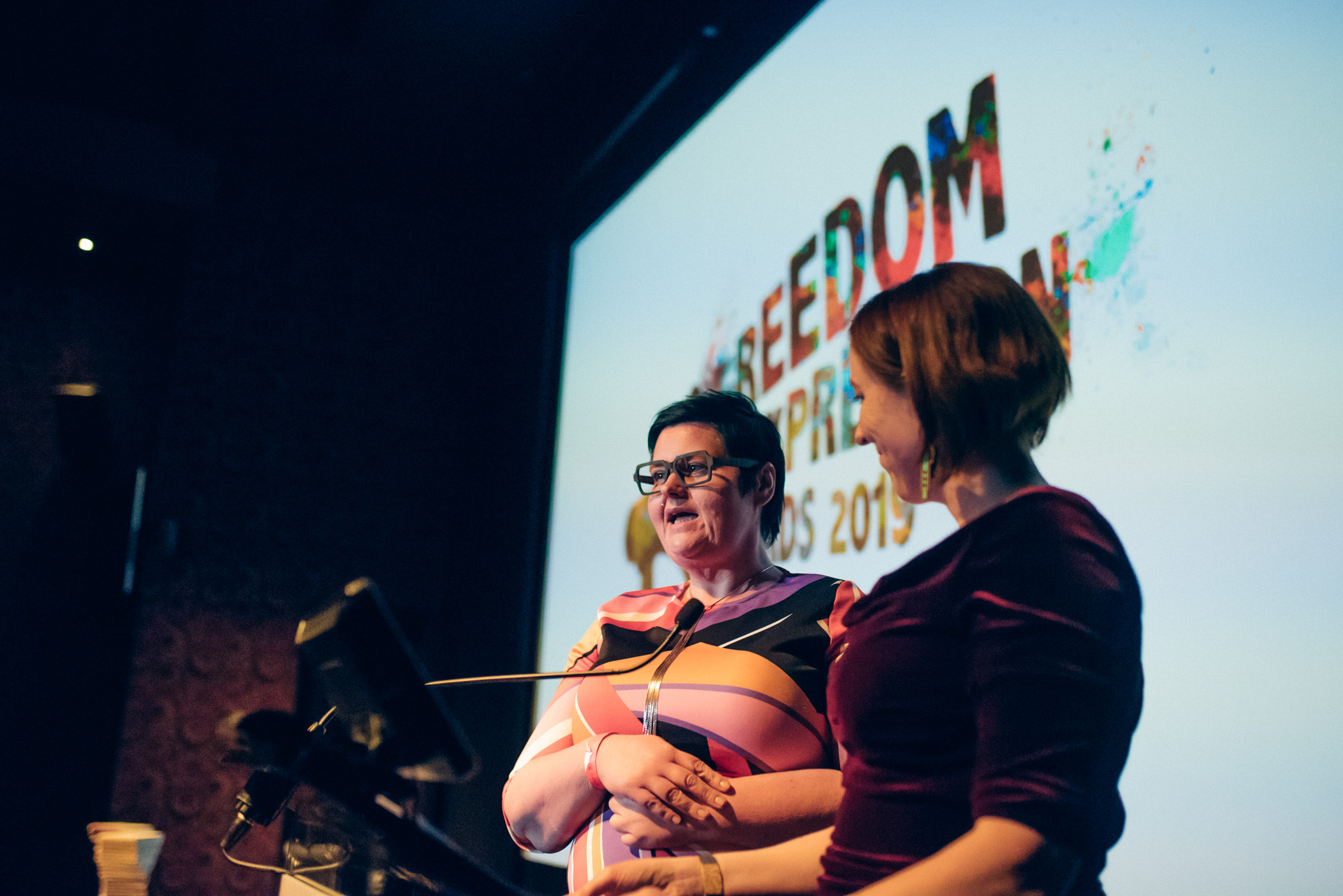[vc_row][vc_column][vc_single_image image=”112645″ img_size=”full”][/vc_column][/vc_row][vc_row][vc_column][vc_column_text]This year’s three nominees in the digital activism category of Index on Censorship’s Freedom of Expression awards work in different areas of the online landscape but all are doing important work.
First up we have the Arab Center for the Advancement of Social Media, or 7amleh, a non-profit organisation focused on protecting the human rights of Palestinians in the online space.
The organisation’s research has shown that two thirds of Palestinian youth are afraid to voice their political opinions online.
Israel routinely uses Palestinians’ private information from social media in its surveillance, leading many young Palestinians to self-censor after seeing family, friends and journalists arrested.
7amleh’s work protecting online safety and digital rights, advocacy and research has been crucial. It has campaigned with NGOs for amendments to the Palestinian Authority’s Cybercrimes Law, the development of the first Arabic Digital Security Manual and digital training being implemented into the Palestinian education system.
Our second nominee is eQualitie, an international group of digital activists whose mission is to promote and defend fundamental freedoms and human rights, including the free flow of information online.
Based in Montreal, eQualitie develop technologies to prevent cyber attacks, work to circumvent internet censorship and secure online communication. Additionally, they launch critical investigations to find the source of attacks and expose them.
As well as advocating free expression online, eQualitie have also delivered security training to over 3,000 journalists, activists and members of the public in over 40 countries. They have defended over 400 organisations from cyber attacks, including Black Lives Matter, and more than a million people use their protected websites every day.
Founded in 2010, our third nominee – HarassMap – allows victims and witnesses of sexual harassment in Egypt to pinpoint on a map exactly where their harassment occurred and also gives them access to a community of people who can help them.
The organisation has collected reports of more than 1,500 incidents of harassment and these are used to put an end to stereotypes that blame the harassed, make people understand that sexual harassment is a crime that has serious consequences, build campaigns to change perceptions and equip volunteers and partners with information that they use to create zero-tolerance attitudes and behaviour in schools, universities, workplaces, and on the streets.
It is based on the idea that if more people start taking action when sexual harassment happens in their presence, they can end what they call “an epidemic”.
HarassMap’s work saw Cairo University become the first in the Middle East to implement an anti-sexual harassment strategy. HarassMap has also partnered with Uber on sexual harassment policy and training.
The winner of the digital activism category will be announced at our awards event at the May Fair Hotel in London on 30 April. Digital activism is one of the four categories that will be recognised at the awards, alongside campaigning, journalism and the arts.
Our 2019 winner in this category was Fundación Karisma.
The winner of the 2020 journalism award will be chosen by a panel of judges which includes Ruth Ibegbuna, founder of multi award-winning youth leadership charity Reclaim and now director of Roots — an initiative aimed at bringing together people from different walks of life.[/vc_column_text][/vc_column][/vc_row]






